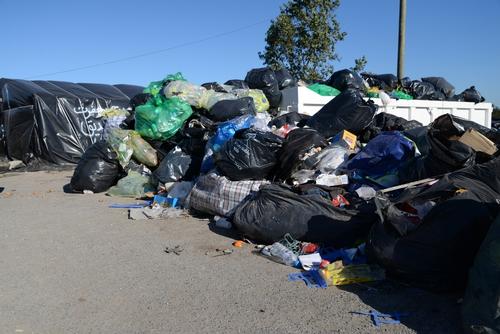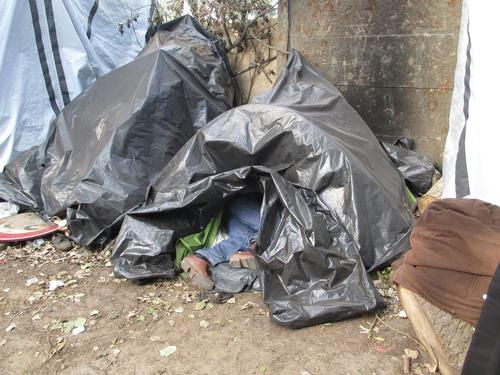Ten months after the camp opened in Calais, the French government is providing 1,500 people with accommodation in container-dormitories installed in a secure area within the camp. Nothing had been done to prepare the flood-prone site in La Lande when it was made available to refugees in March 2015, and it took a long, drawn out process for this temporary accommodation facility to finally see the light of day on 11 January.
There have been more and more refugees arriving at the camp over the past few months. Living conditions are still deplorable. “We decided to take action and respond to the medical needs of the migrants and improve hygiene at the site,” explains Dr Michel Janssens, head of mission at Médecins Sans Frontières (MSF). Last September, MSF refurbished water points and set up a system for removing rubbish. And, although the responsibility of the authorities, MSF continues to distribute garbage bags and partially handle refuse collection.
MSF teams provide between 100 and 120 consultations every day in the clinic set up by the organisation in the camp. These include medical consultations, nursing care and physiotherapy. The diseases treated – respiratory and ENT infections and some cases of scabies – are mainly due to the conditions their patients are subjected to.
With winter fast approaching, it was vital to provide the refugees with shelter from the cold and wet, so MSF began constructing wood cabins, each accommodating 4 to 5 people. Over 100 shelters have been delivered so far and more are being constructed as the accommodation provided by the authorities – 1,500 places at the temporary reception centres and 400 exclusively for women and children at the Jules Ferry centre in La Lande – is wholly insufficient, given the 4,500 to 5,000 migrants living in the Calais camp.
The identity checks enforced at the entrance to the facility encircled with wire fencing the government has set up inside the “Jungle” camp also pose a problem as these checks do nothing to reassure migrants in fear of being forcibly returned to their countries. Furthermore, there are no showers and no means to prepare food. “We have the feeling that security issues are more important than the migrants’ living conditions,” says Janssens.
In addition, an area of 100 metres around the government-run camp has to be cleared for security reasons. This will entail moving the people camping out there, which could lead to yet more tension.
The atmosphere is hardly serene in the Calais camp and the immediate vicinity. More police have been deployed, but they did not prevent several nights of violence last week during which tension mounted between anti-migrant groups, a few refugees and the security forces – who showed no hesitation in firing tear gas and flashballs.
“We treated ten people injured during last week’s violence. They had bruises and other injuries they say were caused by flashballs,” notes Dr Janssens. MSF’s teams in the camp have also heard people saying they had suffered the effects of tear gas or had been injured by flashballs. This is quite incomprehensible to these people who are fleeing from the violence in their own countries.





